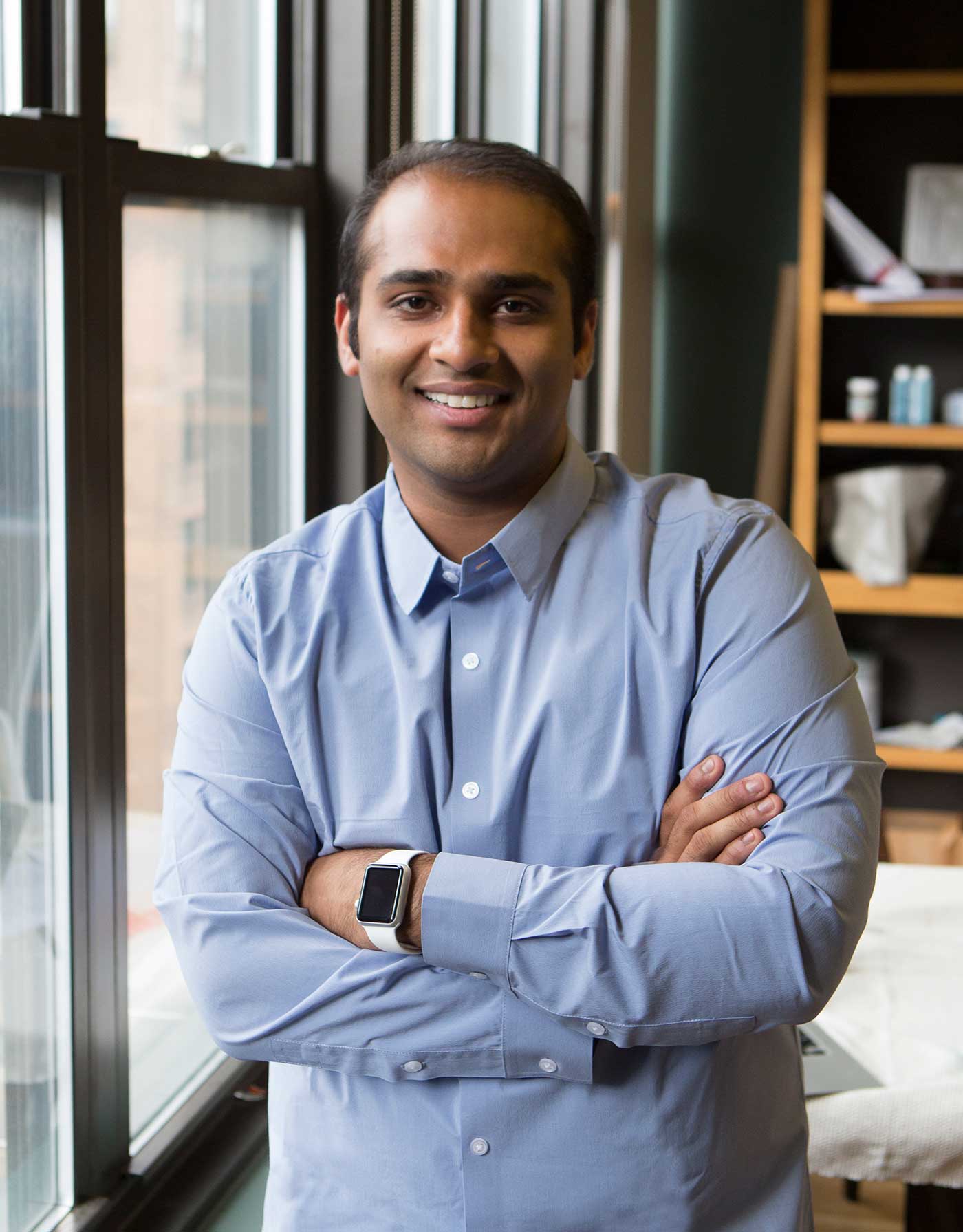row

Many times, the expected way is fine. Not great – but fine. We design for the guys who refuse to accept “fine.”
They’re the solvers – the ones reconsidering the problems that everyone else thought had already been reconciled. They believe there’s always a better way; and driven by curiosity and an inherent passion for the discovery process, they’ll work tirelessly until that better way is achieved.
Neil Parikh is that guy. Since co-founding Casper, arguably one of the most talked-about companies of the past year, Neil and his partners have completely revolutionized the mattress industry by offering a direct-to-consumer shopping experience that’s simple and sensical.
We caught up with Neil to learn more about Casper as well as his own journey (think: med school to NASA patents to pursuing "better sleep for brighter days").
1) How would you describe Casper to the uninitiated?
Casper is a sleep company. We're building a lifestyle brand focused on helping people sleep better- starting with one perfect mattress.
2) As a company, Casper seems to have thought of everything - from sending the mattress in a box that can fit in a car to a 100-day return policy. What was it about the mattress buying experience that, in your mind, was most flawed?
The buying experience right now is super complicated. There's very little transparency, confusing pricing, and subpar products. We tried to reinvent every part of the process, from the way you order to the actual mattress itself.
3) What does a typical day at Casper look like for you?
Meetings start over breakfast, where I try to get caught up with teammates. Then I spend a few hours with each team (Customer Experience, Product Development, Legal, Finance, Data, Retail, etc.) to help clear roadblocks.
4) You put med school on hold to focus on Casper. What went into that decision?
It was a big part of how I ended up here. I’d been thinking about sleep for a while, but the ability to work with a team that could help people at scale was a big motivator to start Casper.
5) From med school to securing NASA patents to co-founding multiple start-ups – what do you see as the common thread?
Realizing that problems don't get solved unless you take initiative to do something about them.
6) What motivates you to solve problems?
Doing so is a tangible way to leave an impact on the world.
7) How do you choose your mentors?
I try to have two types: people who have nothing to do with what I'm working on, and then people who do something similar, but are a few years ahead of where we are.
8) What is one thing you've learned recently?
If you see an issue popping up, deal with it immediately. Letting things simmer only makes them worse.
Shop


